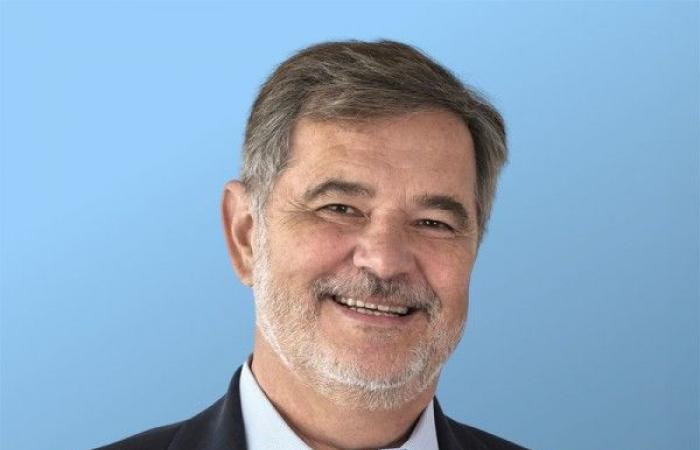The management of sensitive data is central to the market, according to Christian Burrus, of Diot-Saci, and Jean-Maurice Cailler, of Qualibroker-Swiss Risk & Care.
The brokerage market is booming. The merger of Qualibroker and Swiss Risk & Care gives rise to the first independent broker in French-speaking Switzerland and the second in Switzerland. The company is part of the Diot-Siaci group, the leading insurance broker in France, leader in continental Europe, second in the Middle East and 18th in the world. It employs 7,000 people worldwide.
Its turnover will exceed one billion euros at the end of 2024, which corresponds to around 15 billion in premiums, for 5 million policyholders. Half of the turnover comes from France for historical reasons. But the share from the rest of the world is growing rapidly.
“When we settle in a country, we must belong to the leaders,” says Christian Burrus, co-president of the Diot-Siaci group. “All risks are within our reach, whether it involves ensuring satellites in space, nuclear extraction in Niger or even the processing of nuclear waste,” he says. The capital of the Diot-Siaci group belongs 55% to the management, including 42% to the Burrus family.
Jean-Maurice Cailler, president and CEO of Qualibroker-Swiss Risk & Care and Christian Burrus, co-president of its parent company, the Diot-Siaci Group, answer questions from Allnews:
What is your position on the insurance market?
Christian Burrus: Worldwide, the insurance market is dominated by the Anglo-Saxons. But for national economies, it is extremely important to have a local counterpart for information management and protection reasons.
The insurance broker is in fact the holder of sensitive data. This is the case, for example, in matters of illness since we act as the manager of health costs. We also have a consulting activity. We can alert them, for example, in the event of deterioration in the physical or mental health of employees on a company site.
“Today, we are doing more and more management and we are developing into consulting.”
This monitoring work can be carried out in all areas and not just in health. We provide export insurance, credit insurance, etc. We have access to business data and can help our client in the event of a possible deterioration in business. The trust with the customer is total.
We work with all insurers and on complex risks, we take care of all the assembly, including the reinsurance program. For example, we insure all notaries in France through an insurance and reinsurance program. This is one of the largest European contracts in professional liability.
What is your place in Europe?
C.B.: We are the leading independent broker in continental Europe. We are the only European alternative in a market dominated by Americans.
What sets you apart from Anglo-Saxon brokers?
C.B.: The style is completely different in decision-making and in terms of proximity to the customer. We are closer to the decision-making center if it must be taken in Switzerland.
Sovereignty is an extremely important criterion.
Why is sovereignty crucial?
C.B.: We necessarily have access to a lot of information about our clients’ activities to ensure them. Knowing where this information is located is crucial. Swiss companies, whether banks, large international organizations or even industrial companies, want to be sure that their employee data is secure in Switzerland. They should not wander anywhere.
There is a real issue of data sovereignty and security. You should know that the Patriot Act allows the American government to look at what it wants in companies governed by the United States. No choice is possible. In France, a mission has just been entrusted to the former president of MEDEF on the problem of data sovereignty. It’s a real subject.
Is your customer captivity strong?
C.B: No. Large groups make periodic calls for tenders. If we work well, we will remain the broker for many years.
You should know that we don’t just do brokerage. 20 years ago, the broker, especially in Switzerland, made investments, sought insurance coverage and all management was carried out by insurance companies.
“We do a lot of training and help our clients with prevention to avoid certain losses and limit their premiums.”
Today, we are doing more and more management and we are developing into consulting. This is where the added value lies. For example, we are implementing programs to minimize banks’ capital consumption. We do a lot of training and help our clients with prevention to avoid certain losses and limit their premiums. This is why premiums are decreasing in certain sectors.
What is the situation of Qualibroker-Swiss Risk & Care in Switzerland?
J-M.C.: After co-founding Qualibroker in the 2010s, we progressed and gained momentum with some 25 successive acquisitions. For its part, Swiss Risk & Care, owned by Siaci Saint-Honoré, has mainly developed in Geneva. The two companies, one present throughout the country and in Lichtenstein, and the second mainly in Geneva, are of similar size.
On the commercial level, the merger was completed at the beginning of this year. It went very well and we now form a single company under the name Qualibroker-Swiss Risk & Care.
In three years, we have doubled in size, half through acquisition and half through organic growth. We will continue and intensify this dynamic in the years to come.
Is consolidation driving the way brokerage works?
J-M.C.: Absolutely. Insurance brokerage began only around thirty years ago in Switzerland. The brokers were made up of general agents with a background in pure insurance, a bit like asset managers in the banking profession. This activity benefited from strong growth which fueled the concentration process. Switzerland still has many local and some regional brokers.
How is your development financed?
J-M.C.: If we want to develop a group, profitability is an obligation, otherwise we will no longer make new acquisitions. The second lever consists of using our internal capabilities to acquire new customers. Since the creation of our companies, we have developed a human resources offering to complement the “personal insurance” product. We offer solutions for absenteeism management, as well as management training, burn-out prevention, etc. Absenteeism is a major problem today. Some insurers no longer agree to insure sickness and salary losses because the loss ratio is too high. We seek to reduce this loss ratio.
How could you qualify the 2024 financial year?
J-M.C.: Fiscal year 2024 was a good year, after a decade marked by major acquisitions. We have set up a new organization, with a Swiss management committee and two decision-making centers, one for French-speaking Switzerland and the other for German-speaking Switzerland, which allowed us to quickly commit to the future strategy by putting put in place the projects that were important to us. This complementarity allows us to position ourselves more strongly on the Swiss market. We will accelerate on this path in 2025.
Which industries are growing and which are declining?
J-M.C.: Medical or similar branches are growing, particularly EMS, since they represent 12% of Swiss GDP, more than 8% for the banking sector. We advise around 200 EMS in Switzerland. Other areas are going through a more difficult period, such as industry. We also work a lot internationally, with solutions for our Swiss clients, many of whose activities are abroad or with international clients present in Switzerland.
“Fiscal year 2024 was a good year, after a decade marked by major acquisitions.”
Do most of your investments concern digitalization and AI?
J-M.C.: We invest in our human resources to meet customer needs. Proximity is a key factor. IT supports our development. Even if part of our business lends itself well to the use of AI, human “sensitivity” makes the difference.
C.B.: At group level, we invest several tens of millions of francs per year in IT. It’s a big budget.
Insurance lends itself very well to digitalization, as a means of communication with our customers and particularly in claims management.
Is this concern for outsourcing business tasks a growth segment?
C.B: Absolutely. Our diversified offering of HR solutions meets strong expectations. The broker is neither the insurer nor the employer. He acts for his client. This position allows companies that call on us to have a trusted partner, for them and for their employees, recognized for its expertise in all issues related to human resources. We have two companies in Switzerland, Sulzer and Partner in German-speaking Switzerland and Ismat Group in French-speaking Switzerland, which guarantee this posture of independence, including in relation to our own group.
What is your place in the different branches?
J-M.C: We are number one in French-speaking Switzerland because we started here and Swiss Risk & Care is based in Geneva, and particularly in the personal insurance sector. Future growth should come from German-speaking Switzerland and we are continuing our development in property insurance.
What is your average revenue growth?
J.M.C.: We estimate market growth at 2%. Our goal is to achieve a net increase of 5% per year. In 2024, the year of the merger, growth will be average. In 2025, we will push to grow organically. We work a lot with branch expertise, for example in energy in Valais or in EMS.
And we will continue to acquire brokers and offer new business models to insurance market players. You should know that 55% of the business risk market is not in the hands of brokers.
Are you really independent?
J-M.C.: We have an obligation to be independent, as required by our various partners and Finma. As a broker, we are always looking for the optimal solution for our clients. It is not just limited to a question of premium but also takes into account our knowledge of the market.
How independent is the Swiss subsidiary from the group?
C.B.: The independence of each country entity is total. We only sell human services. This proximity is fundamental. This is the key advantage of a group such as ours. We are a confederation. Decisions are made in the country concerned.






